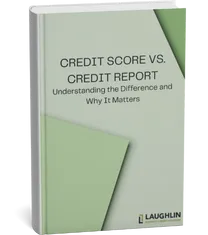
Common Business Credit Myths That Hurt Small Business Owners
Small business owners face countless challenges when building and managing their enterprises, and understanding business credit is one of the most crucial yet misunderstood aspects of business finance. Unfortunately, widespread myths about business credit can lead entrepreneurs to make costly mistakes that limit their access to funding, hurt their creditworthiness, and ultimately stunt their business growth.
Business credit functions differently from personal credit in many ways, yet misconceptions persist that can derail even the most promising ventures. These myths often stem from outdated information, confusion between personal and business credit systems, or simply a lack of comprehensive education about how business credit actually works.
Let's examine the most damaging business credit myths and provide clarity on what small business owners really need to know to protect and build their business credit effectively.
Myth 1: Business Credit and Personal Credit Are the Same Thing
One of the most pervasive and harmful myths is that business credit operates exactly like personal credit. While there are similarities, the differences are substantial and understanding them is critical for proper credit management.
The Reality: Business credit is evaluated using different criteria, timelines, and reporting systems than personal credit. Business credit bureaus like Dun & Bradstreet, Experian Business, and Equifax Business track payment histories with suppliers, vendors, and lenders specifically for business transactions. These bureaus use different scoring models, with Dun & Bradstreet's PAYDEX score ranging from 1-100, where 80 represents paying on time.
Personal credit, managed by consumer bureaus like Experian, Equifax, and TransUnion, focuses on individual financial behavior and uses FICO scores ranging from 300-850. Business credit considers factors like industry risk, business size, and payment patterns with trade creditors, while personal credit emphasizes debt-to-income ratios, credit utilization, and payment history on personal accounts.
Why This Myth Hurts: Business owners who assume the systems are identical may neglect to establish proper business credit profiles, miss opportunities to build trade credit with suppliers, or fail to monitor their business credit reports. This can result in limited access to business funding, higher interest rates, and missed opportunities for favorable trade terms.
Myth 2: You Need Perfect Personal Credit to Get Business Credit
Many entrepreneurs believe they must have flawless personal credit before they can establish business credit, causing them to delay building their business credit profile while working on personal credit issues.
The Reality: While personal credit often plays a role in business credit decisions, especially for new businesses, it's not the sole determining factor. Many lenders and suppliers will extend business credit to companies with owners who have less-than-perfect personal credit, particularly when the business demonstrates strong cash flow, profitability, and industry stability.
Trade creditors, in particular, are often more interested in a business's payment history with other vendors than the owner's personal credit score. Once a business establishes a track record of timely payments with suppliers, it becomes easier to qualify for larger lines of credit and better terms, even with moderate personal credit scores.
Why This Myth Hurts: Waiting for perfect personal credit before building business credit wastes valuable time. Business credit building is a process that takes months or years, and delaying this process can limit a company's growth potential. Additionally, some business owners may qualify for business credit opportunities they're not even pursuing due to this misconception.
Myth 3: Incorporating Your Business Automatically Separates Your Credit
Simply filing incorporation papers or forming an LLC doesn't automatically create credit separation between personal and business finances. This myth leads many business owners to assume they have credit protection when they don't.
The Reality: Credit separation requires deliberate steps beyond just legal incorporation. Business owners must obtain an Employer Identification Number (EIN), open business bank accounts, establish business credit profiles with the major business credit bureaus, and consistently use business credit products and services. Most importantly, they must demonstrate that the business operates as a separate entity with its own financial identity.
Many lenders will still require personal guarantees from business owners, especially for new businesses or those seeking significant credit amounts. True credit separation often takes years to achieve and requires building substantial business credit history and demonstrating business creditworthiness independent of the owner's personal finances.
Why This Myth Hurts: Business owners who believe incorporation automatically provides credit separation may continue mixing personal and business finances, fail to build proper business credit profiles, or be surprised when lenders require personal guarantees. This can result in personal liability for business debts and missed opportunities to establish strong business credit.
Myth 4: Business Credit Reports Are Always Accurate
Many business owners assume that business credit reports are automatically accurate and don't require regular monitoring or correction, unlike personal credit reports that consumers are encouraged to check regularly.
The Reality: Business credit reports are prone to errors, outdated information, and incomplete data, just like personal credit reports. Common issues include incorrect payment histories, outdated business information, duplicate entries, and missing positive payment data. Unlike personal credit reporting, business credit reporting doesn't have the same consumer protection regulations, making it even more important for business owners to be proactive.
Business credit bureaus gather information from various sources, including suppliers, lenders, public records, and sometimes third-party data providers. This complex information flow increases the likelihood of errors or omissions that can negatively impact credit scores and borrowing ability.
Why This Myth Hurts: Business owners who don't regularly monitor their business credit reports may miss errors that could be lowering their credit scores or limiting their access to credit. Inaccurate negative information can remain on reports for years if not challenged, potentially costing thousands in higher interest rates or denied credit applications.
Myth 5: Only Banks and Major Lenders Report to Business Credit Bureaus
Many small business owners believe that only large financial institutions report payment history to business credit bureaus, leading them to focus solely on bank relationships while ignoring other credit-building opportunities.
The Reality: Numerous types of businesses report to business credit bureaus, including suppliers, vendors, utility companies, telecommunications providers, and even some landlords. Trade creditors, in particular, are crucial for building business credit because they often report both positive and negative payment experiences.
Net payment terms with suppliers (like Net 30 or Net 60) provide excellent opportunities to build business credit when payments are made on time. Many business service providers also report payment histories, including office supply companies, fuel card providers, and business equipment lessors.
Why This Myth Hurts: Business owners who focus only on traditional bank credit miss valuable opportunities to build business credit through everyday business relationships. Trade credit is often easier to obtain than bank credit and can serve as a foundation for building the credit history needed to qualify for larger credit facilities later.
Myth 6: Business Credit Building Happens Quickly
Some entrepreneurs expect to build strong business credit within a few months, similar to how quickly personal credit can sometimes be improved with focused effort.
The Reality: Building substantial business credit typically takes 12-24 months of consistent activity, and building enough credit strength to qualify for significant unsecured credit can take even longer. Business credit bureaus need time to collect and verify payment data from multiple sources, and lenders want to see consistent payment patterns over extended periods.
The business credit building process involves multiple stages: establishing business credit profiles, building initial trade credit relationships, demonstrating consistent payment performance, and gradually qualifying for larger credit amounts. Each stage requires time to mature before progressing to the next level.
Why This Myth Hurts: Business owners who expect quick results may become discouraged and abandon their credit-building efforts prematurely. Others may take unnecessary risks or pay excessive fees to companies promising rapid business credit building, when steady, consistent effort over time is the most effective approach.
Myth 7: Personal Guarantees Always Eliminate Business Credit Benefits
Many business owners believe that if they have to provide a personal guarantee for business credit, there's no benefit to building business credit at all.
The Reality: Personal guarantees are common, especially for new businesses, but they don't eliminate all the benefits of business credit. Business credit still helps establish payment history, builds relationships with suppliers and lenders, and can lead to better terms and higher credit limits over time. As businesses mature and demonstrate creditworthiness, many lenders will remove personal guarantee requirements or reduce the guarantee amount.
Business credit also provides liability protection in many situations, even with personal guarantees. If a business fails, creditors typically pursue business assets first, and personal guarantees may have limitations or conditions that don't apply to all business debts.
Why This Myth Hurts: Business owners who avoid building business credit because of personal guarantee requirements miss opportunities to establish credit relationships that could benefit them long-term. They may also pay higher interest rates or receive less favorable terms than businesses with established credit profiles.
Myth 8: You Can Build Business Credit Without Paying Bills on Time
Some business owners believe they can build business credit simply by having accounts open, regardless of payment performance, or that occasional late payments won't significantly impact their business credit.
The Reality: Payment history is the most important factor in business credit scoring, just as it is in personal credit. Late payments, especially those over 30 days past due, can significantly damage business credit scores and remain on business credit reports for years. Even one or two late payments can impact credit scores and future borrowing ability.
Business credit bureaus track payment performance very closely, and many use payment behavior as the primary factor in credit scoring. Some business credit scores, like the PAYDEX score, are based entirely on payment timing, where paying early can actually improve scores beyond just paying on time.
Why This Myth Hurts: Business owners who don't prioritize timely payments may unknowingly damage their business credit while trying to build it. Late payments can result in reduced credit limits, higher interest rates, and difficulty qualifying for future credit, negating the benefits of credit building efforts.
Building Business Credit the Right Way
Understanding these myths is the first step toward building business credit effectively. Here are the key principles that successful business owners follow:
Start Early and Be Consistent
Begin building business credit as soon as possible after establishing your business entity. Consistency in payment timing and credit management is more important than the size of initial credit lines.
Separate Business and Personal Finances
Maintain strict separation between personal and business finances, use business bank accounts for all business transactions, and avoid mixing personal and business credit activities.
Monitor Your Credit Regularly
Check your business credit reports from all three major business credit bureaus at least quarterly, dispute any errors promptly, and track your credit scores over time.
Diversify Your Credit Relationships
Work with multiple suppliers, vendors, and lenders to build a diverse credit profile. Don't rely on just one or two credit relationships.
Pay Bills Early When Possible
Some business credit scoring models reward early payment, so paying bills a few days early can actually improve your credit scores beyond just paying on time.
Understand Your Industry
Different industries have different credit norms and risk profiles. Understand how your industry typically handles credit and payment terms.
The Long-Term Benefits of Strong Business Credit
Building business credit requires patience and consistent effort, but the long-term benefits make it essential for business success. Strong business credit provides access to larger credit lines, better interest rates, favorable trade terms, and the ability to grow without depleting personal resources.
Business credit also provides credibility with suppliers, customers, and partners. Companies with strong business credit profiles are often viewed as more stable and reliable, which can lead to better business opportunities and partnerships.
Perhaps most importantly, strong business credit provides financial flexibility during challenging times. Businesses with established credit relationships and strong credit profiles have more options for managing cash flow challenges, seasonal fluctuations, and unexpected expenses.
Conclusion
Business credit myths can cost small business owners thousands of dollars in higher interest rates, missed opportunities, and limited access to funding. By understanding how business credit really works and avoiding these common misconceptions, entrepreneurs can build strong business credit profiles that support their growth goals.
The key is to start building business credit early, be consistent with payments, maintain proper separation between personal and business finances, and monitor credit reports regularly. While building business credit takes time and effort, the long-term benefits make it one of the most important investments any small business owner can make.
Remember that business credit is not just about getting loans—it's about building financial credibility that touches every aspect of your business, from supplier relationships to growth opportunities. Don't let these myths hold your business back from achieving its full potential.
Leave a Comment
Comments:




©2025 Laughlin Business Credit Advisor, all rights reserved. No reproduction or use of any portion of the content or work, or the entire work, is permitted without the express written permission and authorization of the publisher. However, the publisher of these materials routinely grants authorization for reproduction or use of this work, in whole or in part. If you would like to use any portion of this material in a book, article, e-zine, newsletter, radio or television broadcast, podcast, or in any other seminar, teleconference, or other events or publications, please email or call Laughlin Business Credit Advisor.
Stay inspired, informed, and ahead – fill out the form to join us now!

Dive into our library and unlock a treasure trove of business insights that can transform your journey to success.
Laughlin Business Credit Advisors
680 W. Nye Ln, Ste #201Carson City, NV 89703
All Rights Reserved,
© 2024 Great Basin Holdings, Inc.








